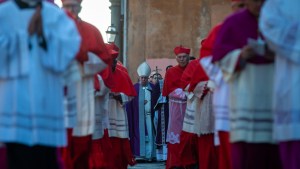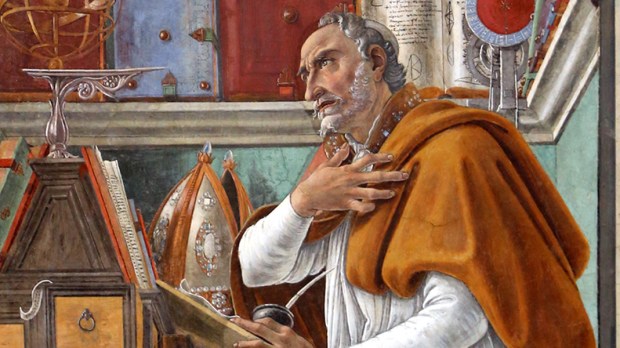The flash-flood moment of juxtaposition can happen to anyone, and indeed probably has happened to everyone. And it can serve as a holy personal Lenten reflection at any time during the season.
Imagine … one minute, you’re walking through the parking lot toward the grocery store and for some inexplicable reason are struck by the thought that there are actually about 7.7 billion people living on the earth right now. “I’m one in 7.7 billion!” you think. “I’m nothing.”
A lightning flash of humility, if you will.
A couple of minutes later, you’re ready to enter the store as you’re already pushing a shopping cart. The person walking in front of you sees you. They let the door close right behind them anyway, ignoring an opportunity to kindly hold it for you to enter without hassle.
“How rude!” you think. “Don’t they know I’m kind of a big deal? Don’t they realize I’m a special person?”
Ah, the thunder that generally proceeds from the lightning. From humble to proud in a matter of seconds. A perfect storm to serve as fodder for penitential meditation.
That juxtaposition occurs early in the Bible, just a couple of chapters separating the two perspectives in Genesis.
The focus on humility commenced in the early moments of the Lenten season, as the ashes were applied to the forehead with reference to Genesis 3:19: “For you are dust, and to dust you shall return.”
We each are just one in 7.7 billion. We are dust, yes, but in Genesis 1:27 we learned that it became holy dust. “God created mankind in his image; in the image of God he created them.”

Read more:
Let us allow ourselves to be loved: Begin Lent with the pope’s comforting Ash Wednesday homily
I asked the Holy Spirit to lead me on a search for some thoughts to provide additional focus for my contemplation on this juxtaposition of humility and pride that often play games in my soul. He led me first to this from Pope Francis:
We are losing our attitude of wonder, of contemplation, of listening to creation and thus we no longer manage to interpret within it what Benedict XVI calls the “rhythm of the love-story between God and man.”
That incredible love-story between God and man is a mystery that we may never fully comprehend, even though many have tried to put it into words. That includes St. Augustine, in his Confessions.
O Omnipotent Good, you care for every one of us as if you did care for him alone, and so for all as if they were but one!
There’s true fodder for reflection. Look at the crucifix and realize that if you were the only human being who ever had sinned, He still would have died on the cross out of love. For you. A love-story that inspires a unique pride tinged with holy humility, the most amazing wonder.

Read more:
How true humility leads to more self-confidence

